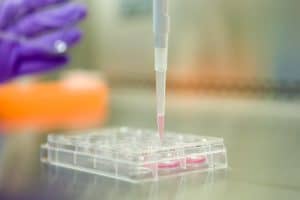
Rinri Therapeutics secures £3.2 million grant for hearing loss therapy
pharmafile | May 13, 2021 | News story | | Stem cells
Sheffield-based biotech company, Rinri Therapeutics, have secured a £3.2 million grant from Innovate UK to further develop Rinri’s novel stem cell therapy to reverse sensorineural hearing loss (SNHL).
The project will be led by Rinri in collaboration with the Cell and Gene Therapy Catapult (CGTC), and the Universities of Sheffield and Nottingham.
Over the course of the project, the CGTC will help establish a process and analytical tools for clinical trial manufacture of Rinri’s stem cell therapy for hearing loss, Sheffield University will further the nonclinical data package and Nottingham University will develop the necessary techniques for the first in human trial of Rinri’s cell-based therapy to restore hearing loss.
Dr Simon Chandler, CEO of Rinri Therapeutics, said: “We are delighted to receive this substantial grant from Innovate UK to conduct further important research into our stem cell therapy for hearing loss.
“We have made superb progress in refining and optimising our technology following our ground-breaking proof of concept data. This grant will be instrumental in supporting the development and initiating clinical studies of our pioneering approach to reverse hearing loss.”
Rinri’s technology is based on stem cell research originating from the University of Sheffield and seeks to reverse SNHL by repairing the damaged cytoarchitecture in the inner ear.
SNHL occurs when there is damage to the hair cells in the cochlear and/or the auditory nerve. There are currently no pharmacological treatments available for SNHL despite the rapid increase in the number of patients that suffer from this condition globally.
Andrew Hogben, Head of Impact and Intellectual Property at the University of Sheffield, said: “Given Rinri was founded on pioneering research led by Professor Marcelo Rivolta at the University of Sheffield, we are really excited to participate in Rinri’s Innovate UK funded project alongside Cell and Gene Therapy Catapult and Nottingham University to advance this novel treatment into the clinic”.
Kat Jenkins
Related Content

Research shows neonatal stem cells could be used as treatment for Crohn’s disease
Recent studies from the Ann & Robert H Lurie Children’s Hospital in Chicago have discovered …

Bone regeneration stem cell “putty” sees positive results in trials
Belgian clinical stage company, Novadip Biosciences, has announced positive results from its Phase I trial …

Diabetes drug could increase stem cells in the womb to treat recurrent miscarriage
A study led by the University of Warwick found that sitagliptin, a diabetes drug, could …








